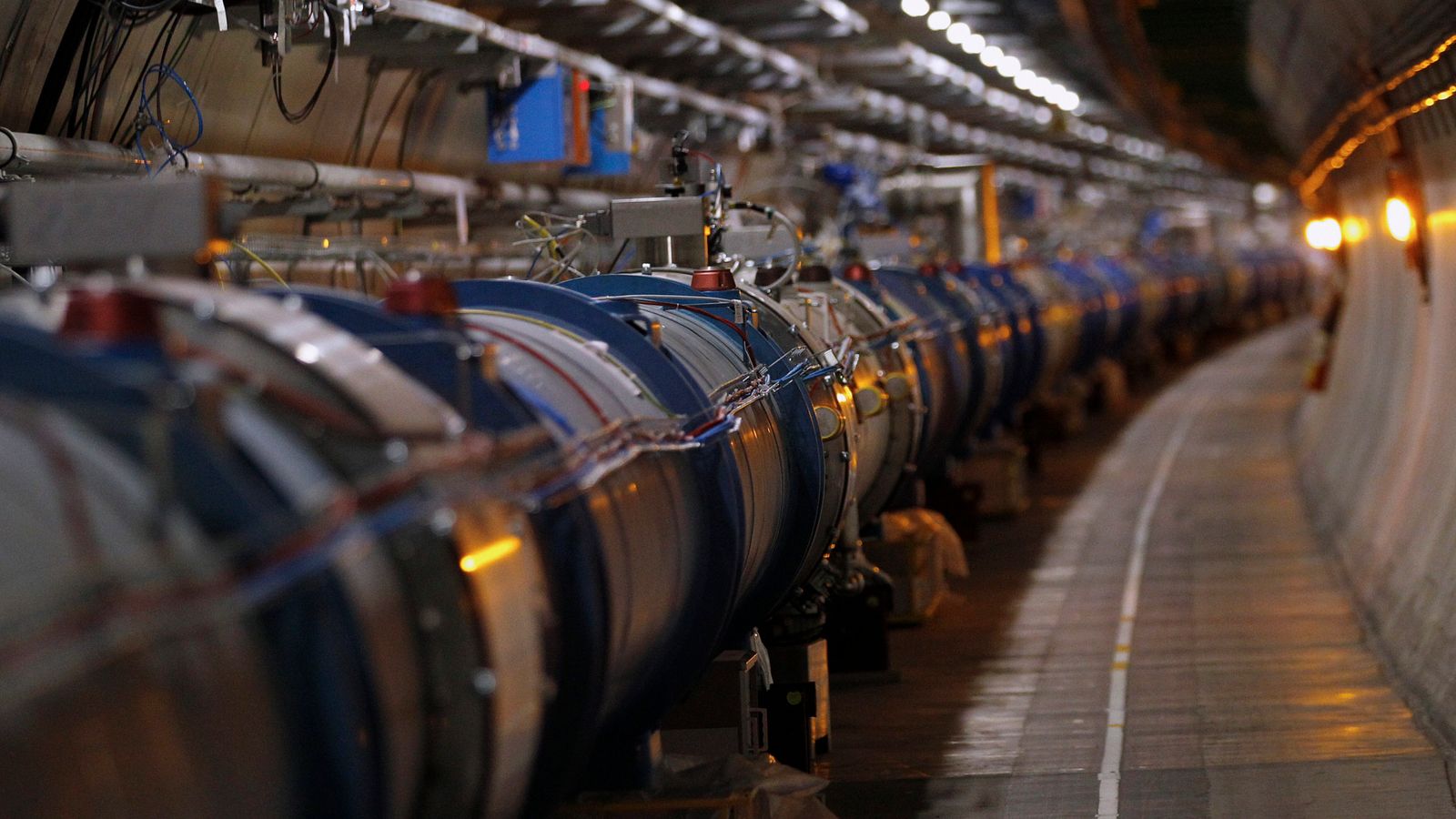Scientists at CERN – home to the world’s largest particle accelerator – have put forward proposals for a new “supercollider” which it is hoped will help uncover the secrets of 95% of the universe.
The Future Circular Collider (FCC) is seen as the giant successor to the Large Hadron Collider (LHC), which sits in a 17-mile tunnel beneath the ground near Geneva, Switzerland – but the new machine is also facing criticism for its £17bn price tag.
The LHC, which started operating in 2008, achieved its first high-energy particle collisions in 2010 and in recent years has received a series of upgrades.
It accelerates subatomic particles to almost the speed of light, before smashing them into each other.
The LHC discovered the so-called “God particle” – the Higgs boson – which enabled researchers to better understand where matter gets its mass from.
However, it has still been unable to find out more about the secrets of dark matter and dark energy – little known forces and particles which would allow scientists to have a better understanding of the universe.
The new proposals come as part of the FCC study by CERN – the European Organisation for Nuclear Research – and would be paid for by its member nations, including the UK, who are all reviewing the plans.
The FCC, which would begin construction in the 2040s and have a circumference of more than 56 miles, has a goal to “push the energy and intensity frontiers of particle colliders” and involves universities and experts from around the world.
CERN’s director general, Professor Fabiola Gianotti, told BBC News: “It is a tool that will allow humanity to make enormous steps forwards in answering questions in fundamental physics about our knowledge of the universe.
“And to do that, we need a more powerful instrument.”
Read more on Sky News:
Snow warning issued for large parts of the UK
UK state pension age will have to rise, say experts
The price and size of the new machine has attracted criticism from other experts.
The UK’s former chief scientific adviser, Prof Sir David King, told the BBC: “When the world is faced with threats from the climate emergency, would it not be wiser to channel these research funds into the endeavours to create a manageable future?”
Be the first to get Breaking News
Install the Sky News app for free
The planet’s next supercollider would consume as much energy as a “medium-sized city”, according to CERN – but adds the FCC would use “just one-sixth of the energy of its most power-intensive rivals to achieve the same physical goals”.
It claims the FCC’s carbon footprint would be “just 1% of the most polluting alternative”.












